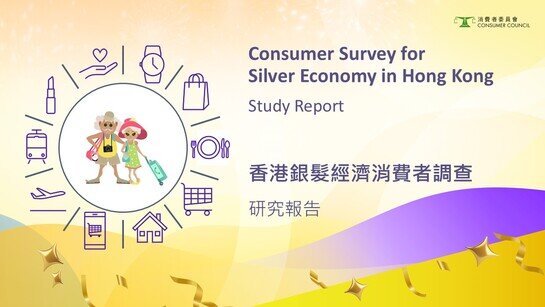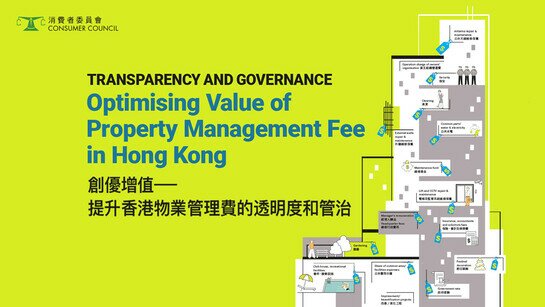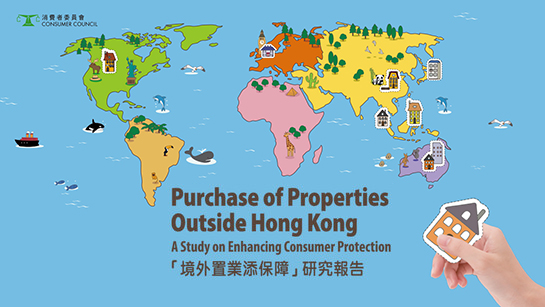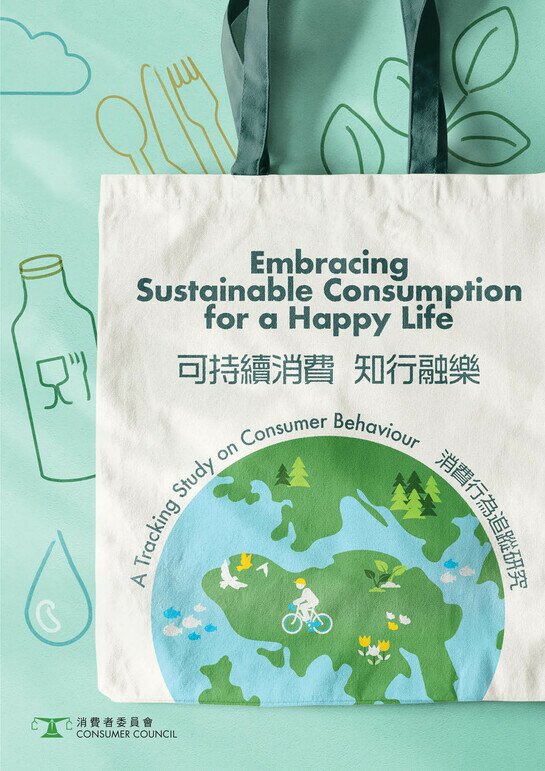Introduction
- In view of recent comments and submissions that have been made to the Bills Committee relating to the above Bill, the Consumer Council is taking this opportunity to provide an additional submission to supplement earlier views made. In particular, the Council wishes to address arguments that have been put forward regarding the proposed Clause 19, which is designed to introduce 'international exhaustion' of trade mark rights.
- There are a number of issues raised by opponents of the Clause, the Council feels necessary to refute.
Economic consequences
- Hong Kong has always been proud of its acclaimed international competitiveness, and its tradition as a free market. Indeed, it can be assumed that Hong Kong's economic success has been largely built on its reputation as a free port and by a commitment by Government not to intervene and put restrictive barriers in the way of access to Hong Kong markets. Imports have become an important source of products for both Hong Kong consumers and business. Where competition has been allowed to develop, in that there has not been private sector market distortion through restrictive practices, consumers and businesses have benefited from this open environment.
- Hong Kong also has a tradition of being able to adapt and lead the way as far as international competitiveness is concerned. This has brought benefits not only for consumers, through wider choices and low prices, but also for the business community which in the process of having to work within a strong competitive environment, has been fortified by the process.
- It is a matter of record that the Hong Kong economy has successfully made the transition from a manufacturing, to a services based economy, to the point where the major economic activity in Hong Kong is now engaged in services. Many products previously manufactured in Hong Kong are now produced elsewhere and are imported into the SAR. The consequences of the shift have clearly demonstrated the ability of the Hong Kong economy to successfully adapt to a changing environment and to lead the way in terms of market liberalization. This is both a healthy sign and one to safeguard.
- The ability for Hong Kong to successfully make the transition from a predominance of manufacturing to that of services provision, can be attributed to a large extent on the demands that open markets have placed on Hong Kong businesses. This discipline of open markets can only assist in helping Hong Kong adapt to changing economic circumstances, and will, if maintained and allowed to evolve at a faster pace than found elsewhere, serve Hong Kong well into the future.
- The suggestion by critics of Clause 19 that some other trading nations may be less than eager to embrace international exhaustion, should not be an excuse for Hong Kong to disregard its professed open market traditions. In any event, the Council queries whether this is correct. From what the Council understands, the process of freeing up markets is a principle being adopted by many developed nations, and parallel imports play an important part in this course of events.
Purported detrimental consequences for the Consumer
- A number of comments have been made suggesting that detrimental consequences will arise if Clause 19 is introduced and Hong Kong has wider choices of goods. In particular that parallel imports will be inappropriate for Hong Kong due to consumers' particular tastes, that the products will be inferior in terms of quality or grade, compared to goods either produced locally or specifically for Hong Kong; or that allowing the imports will somehow confuse and mislead consumers.
- The assumption that consumers will be confused and/or misled because so called 'grey goods' are allowed into the marketplace is misunderstanding, and misrepresenting the nature of the problem. In order to clarify these issues, the Council has set out below a summary of some of the arguments against wider choice that the opponents of Clause 19 have put forward, with corresponding Council comments.
| Arguments against wider choice | Consumer Council comments |
|---|---|
| Consumers will be confused by goods sold under the same trade mark, but manufactured for other markets | Hong Kong consumers already have a vast array of products at their disposal that have been produced with markets in addition to, or other than Hong Kong in mind. The presence of this wide variety of goods has enriched Hong Kong consumers' lives. In fact, the more liberal the regime, the better it will increase choices and bring further downward pressure on prices. The ability for Hong Kong consumers to differentiate between goods of all types cannot be underestimated. |
| Parallel products may have limited shelf life | Goods offered for sale with limited shelf life can occur regardless of whether they are parallel imports, ordinary imports, or domestically produced goods. The responsibility rests with the trader to ensure the goods are not misrepresented. |
| Goods manufactured for other markets vary in quality and standard. | Parallel import products are licensed and are therefore 'genuine' goods. They are not counterfeit but manufactured under the trade mark owner's foreign licensee's standards. The Council trusts that trade mark owners, in their own interests, would ensure licensed products are of a high standard. Otherwise the trade mark owner would remove the license from the manufacturer. To say otherwise is suggesting the trade mark owner allows the production of sub-standard goods. |
| Goods sold under the same trade mark might not meet Hong Kong's technical or safety standards | If goods for sale do not meet appropriate standards, then regardless of whether they are locally produced, parallel imports, or imports without a parallel, it is a matter for the appropriate enforcement authorities. |
| Reduces the ability to detect and prevent counterfeits | Parallel products are not counterfeits. The detection of counterfeits requires the application of law and fact, on a case by case basis. It is a matter that can be capably undertaken by appropriate law enforcement, i.e. the Customs and Excise Department. The proponents of this argument suggest that one competitor who is selling a parallel product (which is not a counterfeit) should be denied that freedom simply to make it easier for another competitor, who wants exclusive rights to sell the product, to identify possible counterfeits. This is denying the first competitor the right to sell a competing product on the assumption that the product might be counterfeit. In effect, presuming guilt before any examination of the product is made. |
Misleading and Deceptive conduct
- There are currently laws in Hong Kong that address misleading trade descriptions, and provide other consumer safeguards (for example, product safety, control of exemption clauses, and other undesirable trading practices). In addition, the Council has recently released a Consultation Paper headed 'Ways to Improve the Regulation of Misleading Advertising' in order to further improve Hong Kong's regulatory environment in circumstances where deception, or other unfair practices arise in the marketing of all goods.
- In considering the options available to protect consumers, it is unreasonable in the extreme for the critics of Clause 19 to suggest that one way to protect consumers from misleading conduct would be to limit the array of choices they have available, and thereby limit the probability that a problem might arise.
- The answer to any problems that might arise in the market place with regard to deception or confused consumers, is through ensuring that there are appropriate self regulatory, administrative or legislative means to protect both consumers from undesirable practices in the marketplace, and to ensure there is a level playing field for all traders.
- The Council is more than prepared to engage in educational activities and publicity campaigns to remind consumers how to exercise informed choice in a market where abundant products are available from various channels. For example, to remind consumers that they should check product labels carefully and ascertain whether there will be adequate after sales service. In essence, to balance all factors with regard to product choice and value for money, as is the case with all purchases.
Conclusion
- The Council trusts that Members of the Bills Committee will recognize that Clause 19 is an important provision that:
- ensures Hong Kong consumers, and the economy as a whole, will benefit from the demands of an open market;
- increases the choices available for Hong Kong consumers; and
- embodies a spirit that epitomizes the professed openness of the Hong Kong trading environment.
- The Council also trusts that Members will appreciate that whatever marketplace problems might arise from the free flow of goods into Hong Kong, either as a result of Clause 19 or otherwise, that these are matters to be addressed under appropriate consumer safeguards. They are not matters to be addressed under laws that protect trade marks and narrow commercial interests.











